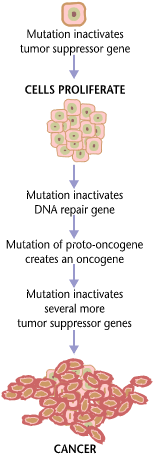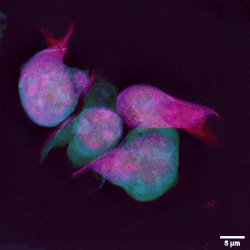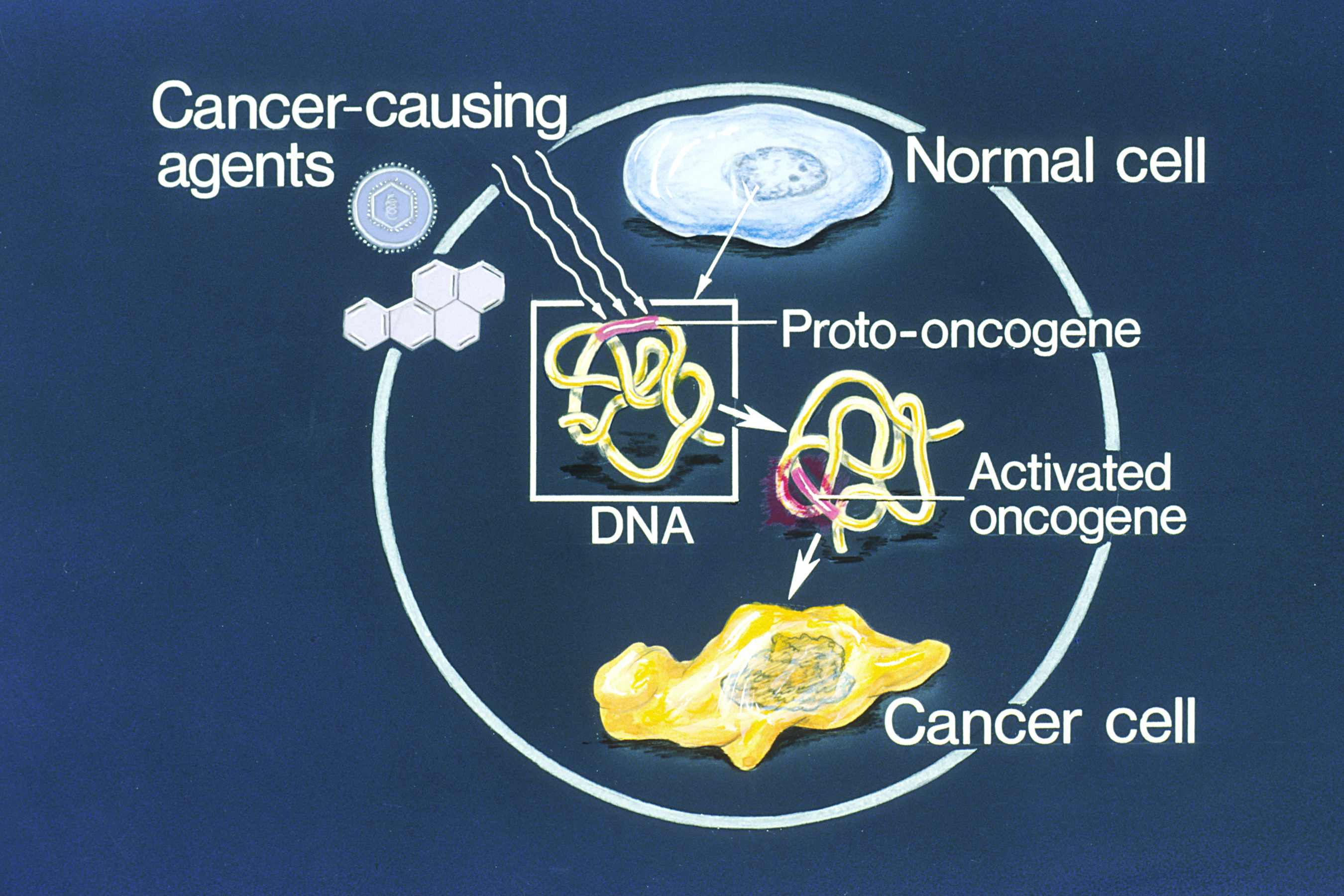|
Adrian Hayday
Adrian Clive Hayday (born 1956) FMedSci FRS is the Kay Glendinning professor and Chair in the Department of Immunobiology at King's College London and group leader at the Francis Crick Institute in the UK. Education Hayday was educated at Queens' College, Cambridge, where he was awarded a Bachelor of Arts degree in natural sciences (biochemistry) in 1978. He went on to complete his PhD in molecular virology of ''Polyomaviridae'' at Imperial College London in 1982. Career and research Hayday began studying immunology as a postdoctoral researcher in 1982 at Massachusetts Institute of Technology (MIT) supervised by Susumu Tonegawa,Adrian Hayday's where he identified the molecular basis of oncogene activation in Burkitt's lymphoma. Thereafter, he first described the genes defining gamma-delta T cells, an evolutionarily conserved yet wholly unanticipated set of lymphocytes. At Yale University, King's College London School of Medicine and the Francis Crick Institute, Hayda ... [...More Info...] [...Related Items...] OR: [Wikipedia] [Google] [Baidu] |
Royal Society
The Royal Society, formally The Royal Society of London for Improving Natural Knowledge, is a learned society and the United Kingdom's national academy of sciences. The society fulfils a number of roles: promoting science and its benefits, recognising excellence in science, supporting outstanding science, providing scientific advice for policy, education and public engagement and fostering international and global co-operation. Founded on 28 November 1660, it was granted a royal charter by King Charles II as The Royal Society and is the oldest continuously existing scientific academy in the world. The society is governed by its Council, which is chaired by the Society's President, according to a set of statutes and standing orders. The members of Council and the President are elected from and by its Fellows, the basic members of the society, who are themselves elected by existing Fellows. , there are about 1,700 fellows, allowed to use the postnominal title FRS (Fellow of the ... [...More Info...] [...Related Items...] OR: [Wikipedia] [Google] [Baidu] |
Queens' College, Cambridge
Queens' College is a constituent college of the University of Cambridge. Queens' is one of the oldest colleges of the university, founded in 1448 by Margaret of Anjou. The college spans the River Cam, colloquially referred to as the "light side" and the "dark side", with the Mathematical Bridge connecting the two. The college has various distinguished or interesting alumni including Desiderius Erasmus, who studied at the college during his trips to England between 1506 and 1515. Other notable alumni include author T. H. White, Israeli politician Abba Eban, founding father of Ghana William Ofori Atta, newsreader and journalist Emily Maitlis, actor Stephen Fry, Governor of the Bank of England Andrew Bailey, and the British members of Parliament Stephen Kinnock and Liz Kendall. , the college held non-current assets valued at £111.18 million. The current president of the college is the economist Mohamed A. El-Erian. Past presidents include Saint John Fisher. History Que ... [...More Info...] [...Related Items...] OR: [Wikipedia] [Google] [Baidu] |
British Society For Immunology
The British Society for Immunology, or BSI, is a UK-based organisation of British immunologists but accepts members from all countries. It was founded in November 1956 by John H. Humphrey, Robin Coombs, Bob White, and Avrion Mitchison and is one of the oldest and largest Immunology societies in the world and the largest in Europe. It publishes two scientific journals: ''Immunology'' and ''Clinical and Experimental Immunology''. BSI members work throughout the entire Immunology chain, stretching from the laboratory bench right through to the clinics and hospitals in which patients are treated - from discovery to delivery. The fields in which they work are wide and extensive, from HIV/AIDS to allergy, diabetes, malaria, tuberculosis, animal health, arthritis, transplantation, vaccination and infectious disease. The BSI’s main objective is to promote and support excellence in research, scholarship and clinical practice in immunology for the benefit of human and animal health and ... [...More Info...] [...Related Items...] OR: [Wikipedia] [Google] [Baidu] |
Immunotherapy
Immunotherapy or biological therapy is the treatment of disease by activating or suppressing the immune system. Immunotherapies designed to elicit or amplify an immune response are classified as ''activation immunotherapies,'' while immunotherapies that reduce or suppress are classified as '' suppression immunotherapies''. Immunotherapy is under preliminary research for its potential to treat various forms of cancer. Cell-based immunotherapies are effective for some cancers. Immune effector cells such as lymphocytes, macrophages, dendritic cells, natural killer cells, and cytotoxic T lymphocytes work together to defend the body against cancer by targeting abnormal antigens expressed on the surface of tumor cells. Vaccine-induced immunity to COVID-19 relies mostly on an immunomodulatory T cell response. Therapies such as granulocyte colony-stimulating factor (G-CSF), interferons, imiquimod and cellular membrane fractions from bacteria are licensed for medical use. Others includin ... [...More Info...] [...Related Items...] OR: [Wikipedia] [Google] [Baidu] |
Carcinogenesis
Carcinogenesis, also called oncogenesis or tumorigenesis, is the formation of a cancer, whereby normal cells are transformed into cancer cells. The process is characterized by changes at the cellular, genetic, and epigenetic levels and abnormal cell division. Cell division is a physiological process that occurs in almost all tissues and under a variety of circumstances. Normally, the balance between proliferation and programmed cell death, in the form of apoptosis, is maintained to ensure the integrity of tissues and organs. According to the prevailing accepted theory of carcinogenesis, the somatic mutation theory, mutations in DNA and epimutations that lead to cancer disrupt these orderly processes by interfering with the programming regulating the processes, upsetting the normal balance between proliferation and cell death. This results in uncontrolled cell division and the evolution of those cells by natural selection in the body. Only certain mutations lead to cancer w ... [...More Info...] [...Related Items...] OR: [Wikipedia] [Google] [Baidu] |
T Cell
A T cell is a type of lymphocyte. T cells are one of the important white blood cells of the immune system and play a central role in the adaptive immune response. T cells can be distinguished from other lymphocytes by the presence of a T-cell receptor (TCR) on their cell surface. T cells are born from hematopoietic stem cells, found in the bone marrow. Developing T cells then migrate to the thymus gland to develop (or mature). T cells derive their name from the thymus. After migration to the thymus, the precursor cells mature into several distinct types of T cells. T cell differentiation also continues after they have left the thymus. Groups of specific, differentiated T cell subtypes have a variety of important functions in controlling and shaping the immune response. One of these functions is immune-mediated cell death, and it is carried out by two major subtypes: CD8+ "killer" and CD4+ "helper" T cells. (These are named for the presence of the cell surface proteins CD8 or ... [...More Info...] [...Related Items...] OR: [Wikipedia] [Google] [Baidu] |
King's College London GKT School Of Medical Education
GKT School of Medical Education (abbreviated: GKT) is the medical school of King's College London. The school has campuses at three institutions, Guy's Hospital ( Southwark), King's College Hospital ( Denmark Hill) and St Thomas' Hospital ( Lambeth) in London – with the initial of each hospital making up the acronymous name of the school. University Hospital Lewisham and Queen Elizabeth Hospital are also teaching hospitals for GKT School of Medical Education. The school in its current guise was formed following a merger with the United Medical and Dental Schools of Guy's and St Thomas' Hospitals on 1 August 1998. The medical school has an annual intake of around 400 places on the standard MBBS Programme, 50 places on the Extended Medical Degree Programme (EMDP) and 23 places on the Graduate/Professional Entry Programme (GPEP), and an additional 2 places on the GPEP course for Maxillofacial (MaxFax) Entry. The intake numbers vary year to year. It receives more applications fo ... [...More Info...] [...Related Items...] OR: [Wikipedia] [Google] [Baidu] |
Lymphocyte
A lymphocyte is a type of white blood cell (leukocyte) in the immune system of most vertebrates. Lymphocytes include natural killer cells (which function in cell-mediated, cytotoxic innate immunity), T cells (for cell-mediated, cytotoxic adaptive immunity), and B cells (for humoral, antibody-driven adaptive immunity). They are the main type of cell found in lymph, which prompted the name "lymphocyte". Lymphocytes make up between 18% and 42% of circulating white blood cells. Types The three major types of lymphocyte are T cells, B cells and natural killer (NK) cells. Lymphocytes can be identified by their large nucleus. T cells and B cells T cells (thymus cells) and B cells ( bone marrow- or bursa-derived cells) are the major cellular components of the adaptive immune response. T cells are involved in cell-mediated immunity, whereas B cells are primarily responsible for humoral immunity (relating to antibodies). The function of T cells and B cells is to recognize sp ... [...More Info...] [...Related Items...] OR: [Wikipedia] [Google] [Baidu] |
Gamma Delta T Cell
Gamma delta T cells (γδ T cells) are T cells that have a γδ T-cell receptor (TCR) on their surface. Most T cells are αβ (alpha beta) T cells with TCR composed of two glycoprotein chains called α (alpha) and β (beta) TCR chains. In contrast, γδ T cells have a TCR that is made up of one γ (gamma) chain and one δ (delta) chain. This group of T cells is usually less common than αβ T cells, but are at their highest abundance in the gut mucosa, within a population of lymphocytes known as intraepithelial lymphocytes (IELs). The antigenic molecules that activate gamma delta T cells are still largely unknown. However, γδ T cells are peculiar in that they do not seem to require antigen processing and major-histocompatibility-complex (MHC) presentation of peptide epitopes, although some recognize MHC class Ib molecules. γδ T cells are believed to have a prominent role in recognition of lipid antigens. They are of an invariant nature and may be triggered by alarm signals, ... [...More Info...] [...Related Items...] OR: [Wikipedia] [Google] [Baidu] |
Burkitt's Lymphoma
Burkitt lymphoma is a cancer of the lymphatic system, particularly B lymphocytes found in the germinal center. It is named after Denis Parsons Burkitt, the Irish surgeon who first described the disease in 1958 while working in equatorial Africa. The overall cure rate for Burkitt lymphoma in developed countries is about 90%, and it is worse in low-income countries. Burkitt lymphoma is uncommon in adults, in whom it has a worse prognosis. Classification Burkitt lymphoma can be divided into three main clinical variants: the endemic, the sporadic, and the immunodeficiency-associated variants. By morphology (i.e., microscopic appearance), immunophenotype, and genetics, the variants of Burkitt lymphoma are alike. * The endemic variant (also called "African variant") most commonly occurs in children living in malaria-endemic regions of the world (e.g., equatorial Africa, Brazil, and Papua New Guinea). Epstein–Barr virus (EBV) infection is found in nearly all patients. Chronic mala ... [...More Info...] [...Related Items...] OR: [Wikipedia] [Google] [Baidu] |
Oncogene
An oncogene is a gene that has the potential to cause cancer. In tumor cells, these genes are often mutated, or expressed at high levels.Kimball's Biology Pages. "Oncogenes" Free full text Most normal cells will undergo a programmed form of rapid cell death () when critical functions are altered and malfunctioning. Activated oncogenes can cause those cells designated for apoptosis to survive and proliferate instead. Most oncogenes began as proto-oncogenes: normal genes involved in cell growth and proliferation or inhibition of apoptosis. If, through mutation, normal genes promoting cellular growth are up-regulated (gain-of-function mutation), they will predisp ... [...More Info...] [...Related Items...] OR: [Wikipedia] [Google] [Baidu] |
Postdoctoral Researcher
A postdoctoral fellow, postdoctoral researcher, or simply postdoc, is a person professionally conducting research after the completion of their doctoral studies (typically a PhD). The ultimate goal of a postdoctoral research position is to pursue additional research, training, or teaching in order to have better skills to pursue a career in academia, research, or any other field. Postdocs often, but not always, have a temporary academic appointment, sometimes in preparation for an academic faculty position. They continue their studies or carry out research and further increase expertise in a specialist subject, including integrating a team and acquiring novel skills and research methods. Postdoctoral research is often considered essential while advancing the scholarly mission of the host institution; it is expected to produce relevant publications in peer-reviewed academic journals or conferences. In some countries, postdoctoral research may lead to further formal qualificati ... [...More Info...] [...Related Items...] OR: [Wikipedia] [Google] [Baidu] |







